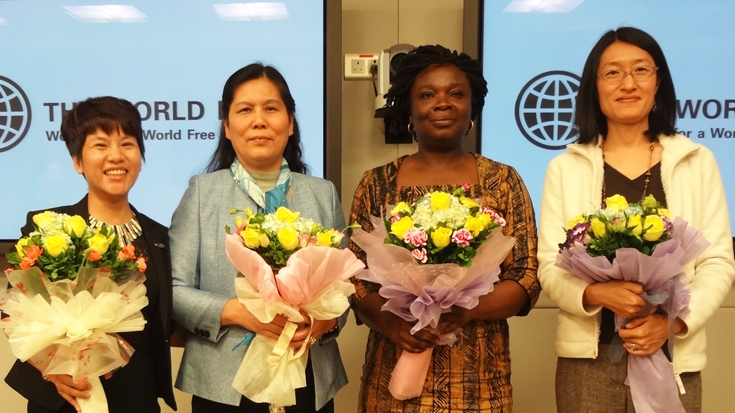Hanoi, March 7, 2013 – Despite the country’s improvements in gender equality, Vietnamese women are lagging behind their male counterparts when it comes to political and economic leadership in Vietnam. Only one fourth of the members of the National Assembly are women and women are underrepresented in the leading bodies of the Party. And although women are very active in the economy, the businesses they head usually have fewer employees and make less revenue than those headed by men.
International experience shows that gender equality is a win-win for development and for business and that it is possible to change things and to get more women into leadership positions. On March 6, two days before the International Women’s Day, four women leaders joined a live chat organized by the World Bank in Vietnam to discuss challenges and ways forward in promoting women in leadership.
Vietnam Women’s Union President Nguyen Thi Thanh Hoa, Country Representative for UN Women in Vietnam Shoko Ishikawa, World Bank Country Director for Vietnam Victoria Kwakwa, and TalentPool CEO Do Thuy Duong, responded to dozens of questions from readers.
Housework: A shared responsibility
The most common question from readers was how to balance professional work and personal life, breaking down prejudice that put most housework responsibilities on women’s shoulders.
As the head of the largest organization in Vietnam working toward women’s advancement, Ms. Hoa said the government should develop favorable policies for women, and women should actively manage their life as well.
“Everyone must be aware that housework is a shared responsibility among all family members, not just women,” Ms. Hoa said. “Women should mobilize their husbands and children to share housework.”
Ms. Ishikawa thinks that expectation has focused too much on women’s roles at home and their responsibilities in taking care of the families. “We need to change this expectation and promote women’s leadership potential in politics, business and society,” said Ms. Ishikawa.
She also added that we should look at how this issue has been reflected in school and through the media: “We need to highlight role models and positive images of female leaders, and highlight women’s roles in non-traditional jobs such as business leaders, scientists, architects so that we can change perceptions on tasks that women can take on.”


